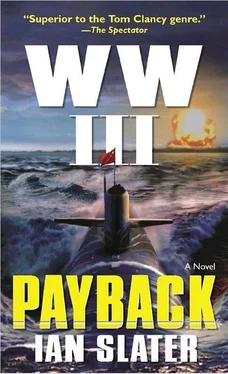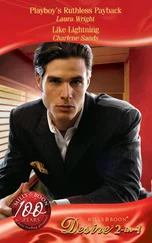Colonel Kim, studying the battle maps at Unit 5’s barracks, his hands clasped behind his green uniform, his red colonel stars on his stiff shoulder boards catching the light, was preoccupied, not with the far north around the Free Trade Zone but rather with possible entry points to the South along the DMZ. Major Park saw the colonel’s fingers closing and opening like a claw in spasm, a telltale sign of his superior’s irritation with Rhee’s concern about the Najin-Sonbong FTZ. “That’s absurd,” the colonel snapped at Rhee. “Look at the map, Comrade. From Najin-Sonbong Free Trade Zone to the warehouse here in Kosong is over 250 miles.”
“Helicopters,” said Rhee, his tone bordering on insubordination. “The Americans have helicopters.”
Major Park flushed angrily. “You think the gangsters would fly all the way down from the FTZ because it is easier for them to use the FTZ as a base? If they come at all — and it’s too soon — they will come by helo from the sea. Straight in from the sea, not on such a ridiculous, roundabout way. The Americans only know one way. Our Intelligence files tell us that the U.S. gangster Freeman prides himself on it. ‘Straight through,’ that is his strategy. Americans by nature are too impatient for any other way.”
The colonel, the only one of the three officers whose rank made him privy to Omura’s agent’s report about the all-weather-wrapped equipment that had been loaded onto the Galaxy in Honolulu, leaned forward, fingers drumming irritably on the map table.
“Inchon,” he said simply, and Major Park lapsed into an embarrassed silence, while Rhee found new respect for the colonel.
Inchon, Rhee had realized, had happened way back in 1950, but was it a salutary lesson in the present circumstances? None of the three men had been born, let alone been a soldier in the army when the present Dear Leader’s father, Kim Il Sung, had unleashed his million-strong Communist Army, his seven Soviet-equipped North Korean Army divisions hurling themselves against the South. As Kim, Park, and Rhee grew up, they, like all of North Korea’s children, had learned the story of the eighty-thousand-strong NKA invasion force which, spearheaded by an armored division of over 250 tanks, had surged across the 38th parallel early on the early morning of June 25, 1950. Seoul, the South Korean capital, had fallen in seventy-two hours, its fleeing, terrified population caught by Movietone cameramen, the sweeping black-and-white images of the South Korean collapse flashed across the world, the prospect of yet another world war threatening barely five years after the cataclysm of 1939–1945 had ended with the hope that a United Nations could prevent war.
Rhee remembered the exhilaration in his great-grandfather’s voice as he described how his platoon, indeed all the NKA platoons, ran, not walked, behind their Chinese-built Soviet T-34 main battle tanks as the NKA armor crushed Seoul, mercilessly routing and rolling over the terrified outgunned, outtrained, outplanned, and panic-stricken South Korean troops. U.S. troops were rushed from U.S.-occupied Japan to hold the line. They couldn’t. Though many were veterans of the fierce fighting of just a few years before in Europe and the South Pacific, having been blooded in the horrific close-quarters combat from Saipan to Iwo Jima and Okinawa, many were now out of shape, having enjoyed the long postwar furlough in Japan and carrying “spare-tire” stomachs to show it. And they were out of practice, their positions overrun as they joined the millions of fleeing South Koreans.
Through sheer luck, the Soviet member of the five-member-country Security Council had stormed out of the U.N. headquarters in New York in a fit of pique the day before the invasion and so wasn’t present for the crucial emergency Sunday Security Council vote as to whether or not the U.N. should send U.N. forces to assist the South Koreans in their hour of dire need. Without the Soviets, who would have had the power of a veto, the Security Council vote was unanimous to assist South Korea. And so U.S., British, Australian, Canadian, Turkish, and other troops, under overall U.S. command, embraced that euphemism for war, “police action,” on the Korean Peninsula. Like all civil wars, from before Athens and Sparta to the massive slaughter of the American Civil War and the equally savage Russian Revolution of 1917, the war between North and South in Korea was unforgiving, members of one American division machine-gunning unarmed NKA POWs in the dread-filled tit-for-tat nature of the “police action.” In less than twelve months, the NKA, as Rhee’s great-grandfather had told him, had managed, with the help of the Chinese, to force the U.S.-led, blue-flagged U.N. troops to retreat over 175 miles to the southern end of the “limp dick” as U.S., Australian, and British soldiers insultingly referred to the drooping-phallus-shaped country. The U.N. soldiers were fighting for their lives in the ever-shrinking Pusan pocket, a sixty-mile-diameter enclave of burning buildings and exhausted, dying men.
It was an extraordinary victory for Kim Il Sung’s armor-led Communist legions. And a massive humiliation for the U.N. forces, especially for the U.S. Army, the once-great capitalist army that as recently as five years before had boasted a strength of millions but which now stood, very unsteadily, at only a fraction of that. America, Rhee’s great-grandfather explained, was so typical of weak, democratic countries. It had demobilized so rapidly in 1945–1946, after the Nazis and Japanese fascists had surrendered, that all the U.N. force had now, apart from the relatively few tough British Commonwealth brigades, U.S. Marines, and the Turks, were what Rhee’s great-grandfather’s generation called overfed, “degenerate Americans” shipped over in haste from Japan.
The NKA’s noose of steel, Rhee recalled his great-grandfather telling him, had tightened around Pusan, forward NKA officers consolidating their forces and making wagers with one another about who would be the first officer to have the honor of seeing the first U.S. flag of surrender.
Kim, seeing how the young lieutenant’s concern about a possible Freeman attack from the Free Trade Zone had been stymied by the mention of Inchon, reminded Major Park and Rhee in an uncharacteristic moment of levity that the joke at the time around the Pusan perimeter was that many South Koreans and some Americans had torn off their white T-shirts and underpants, so desperate were they to surrender. But it was not easy to see them, given the thick, roiling black smoke that had resulted from the U.N.’s forces’ ad hoc scorched-earth policy, and in the chaos that ensued from the South Korean forces’ massive abandonment of arms and matériel during their rout to Pusan.
Lieutenant Rhee knew the rest: it had been drilled into him and his comrades at school how his great grandfather’s generation of North Koreans had continued to close on Pusan along the 150- to 200-mile-long semicircular perimeter, the NKA’s disposition of forces looking from high points along the banks of the Naktong River on the evening of September 14 like a predator’s open mouth about to snap shut on the beleaguered American and other U.N. forces, their backs to the East Sea. U.S. fighter bombers were swarming overhead, but all along the perimeter, as had often been the case during the U.S. and South Korean retreat from the 38th parallel, the confusion created by the flood of refugees intermixed with fleeing soldiers, the NKA in hot pursuit, made it impossible for the pilots to distinguish friend from foe, scores of the U.N. soldiers being killed or wounded by “friendly fire.”
“Then it happened,” Rhee’s great-grandfather told him. “Inchon.” Rhee remembered that whenever his great-grandfather came to this part of the story about the Americans being exhausted, about to be pushed into the sea, the old NKA soldier’s face became a bitter mask. “The American gangster MacArthur landed at Inchon.”
Читать дальше












